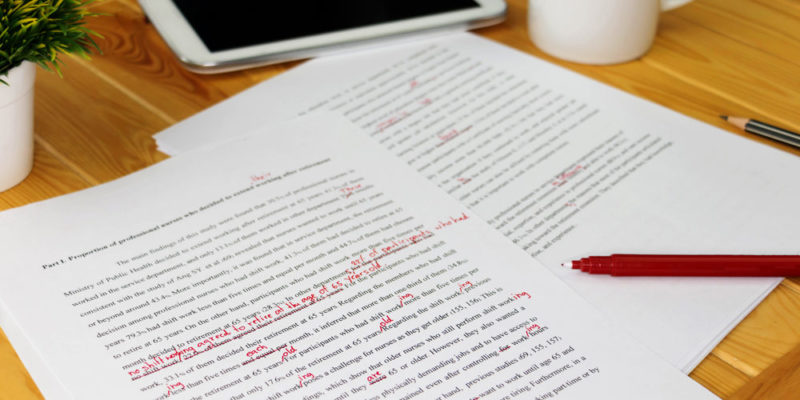We explain what a monograph is and what its structure is like. Also, what are its main characteristics, classification and more.
What is a monograph?
The word monograph comes from the ancient Greek: mono (one) and graphos (writing) , from which it follows that it is a type of textual elaboration that deals with a single specific topic, making use of all the sources available on the subject, as well as different perspectives on it.Monograph is usually understood to be the written product of a more or less exhaustive research work on a specific topic, which includes the use of information sources (and their submission in a bibliography), as well as a schematic elaboration of the different stages of the study. development of the idea addressed.
A monograph is an exercise in ordering thought and a fluent writing practice , frequently used in the educational field.
Characteristics of a monograph :
Structure

The typical structure of a monograph includes most of these elements:
- Index. Schematic organization of the total work information .
- Introduction . Prior approach to the subject and generation of a frame of reference to understand the subject.
- Body of investigation. Where the total development of the research topic occurs .
- Closing . Final section where the conclusions obtained once the research topic has been addressed are given.
- Bibliography. Methodologically organized list of consulted sources.
- Grades. In many cases, the explanatory notes of the investigation do not go to the bottom of the page, but to the end of the complete document.
Thematic
There is no thematic limitation for the preparation of a monograph . From scientific, humanistic topics, public opinion, general culture and even specific experiences, everything is susceptible to the critical elaboration and the informative organization that the monograph method entails.
Types
 According to their treatment of the subject matter, three types of monograph can be distinguished:
According to their treatment of the subject matter, three types of monograph can be distinguished:
- Compilation. It reports an exhaustive reading of the available sources on the subject, such as a critical reading of references.
- Research. Carry out original research on a topic, aiming to organize what has already been said and explore the newest trends.
- From analysis of experiences. A series of experiences are reported, they are organized, conclusions are drawn, comparisons are made and a critical analysis of the issues involved is structured.
Stages of the investigation
Usually the preparation of a monograph obeys a progressive process of obtaining and organizing information that can be summarized as:
- Selection of the topic to be investigated.
- Checking of sources and review of bibliography.
- Preparation of a work plan or scheme.
- Scheme development.
- Final writing and correction of the style.
Differences from essay or report
 Although there are numerous textual types of communicating information regarding a specific topic, such as essays, reports or monographs (or even reports and other journalistic genres that are not relevant), they are distinguished in each case according to the specific approach to the topic:
Although there are numerous textual types of communicating information regarding a specific topic, such as essays, reports or monographs (or even reports and other journalistic genres that are not relevant), they are distinguished in each case according to the specific approach to the topic:
- Report. Short text , in which the various elements of a topic or an event are structured, attending to the specific need of a specific recipient to know it in detail. For example: medical report, report of duties of a position, report of a meeting.
- Essay . Subjective approach to a subject, from the unique perspective of the author, making use of literary tools, rhetorical figures and without feeling the need to scientifically support his postulates. It is a literary genre .
- Monograph. An extensive and exhaustive approach to a topic, supported by bibliographic databases and sources that validate the author's perspective. He is preferred in academia.
Accuracy and clarity
A monograph must delimit very well the subject of study that it addresses, making it clear to what extent it will be exposed and what the precise perspectives will be for it. In the same way, your presentation is expected to be clear, fair, demonstrating knowledge of the terminology and understanding of the subject. That is why it is preferred as a form of demonstration of learning in school settings .Verification and impartiality
The perspective that governs a monograph must be objective, impartial, that is to say, it must not be affected by the feelings or personal considerations of the author, as an essay might. For this, a bibliographic support and a specific methodology is also required, which legitimizes the exhibition work based on its verifiability and fairness.
Academic importance
 Given that the monograph requires a profuse research on the part of its author , together with a thorough understanding of the information collected in the sources, and also a correct and fair wording according to specific methodological guidelines, the monograph becomes the favorite form of educational evaluation , regarding these specificities:
Given that the monograph requires a profuse research on the part of its author , together with a thorough understanding of the information collected in the sources, and also a correct and fair wording according to specific methodological guidelines, the monograph becomes the favorite form of educational evaluation , regarding these specificities:
- Outline a problem
- Collect sources of different types
- Rank the information
- Write and comply with a methodology
Methodological types
There are currently two major methodological methods available for the preparation of monographs. Each one proposes a different source rendering system.
- APA method. It is the method of the American Psychological Association, and is preferred for addressing social science, actuarial science, and other scientific approaches.
- MLA method. Promulgated by the Modern Languages Association , it is suitable for humanistic research: arts , linguistics, modern languages .
Visual support or accompaniment
Monographs often benefit from the inclusion of visual elements such as photographs , tables, graphics, etc. In certain methodological regimes, said material is inserted in the body of the research, while in others its organization is favored in a final section of annexes , choosing to simply refer to them when appropriate throughout the monograph.MA student of the TransAtlantic Masters program at UNC-Chapel Hill. Political Science with a focus on European Studies. Expressed ideas are open to revision. He not only covers Technical articles but also has skills in the fields of SEO, graphics, web development and coding. .
Leave a reply
Your email address will not be published. Required fields are marked *Recent post

Sport: What Is It, Types, Risks, Features, Characteristics and Examples
September 23, 2021

Dogs: Emergence, Features, Characteristics, Feeding and Breeds
September 24, 2021

Story: Definition, Elements, Structure, Features and Characteristics
September 24, 2021

Essay: Definition, Structure, Features, Characteristics, How to Do It
September 24, 2021
